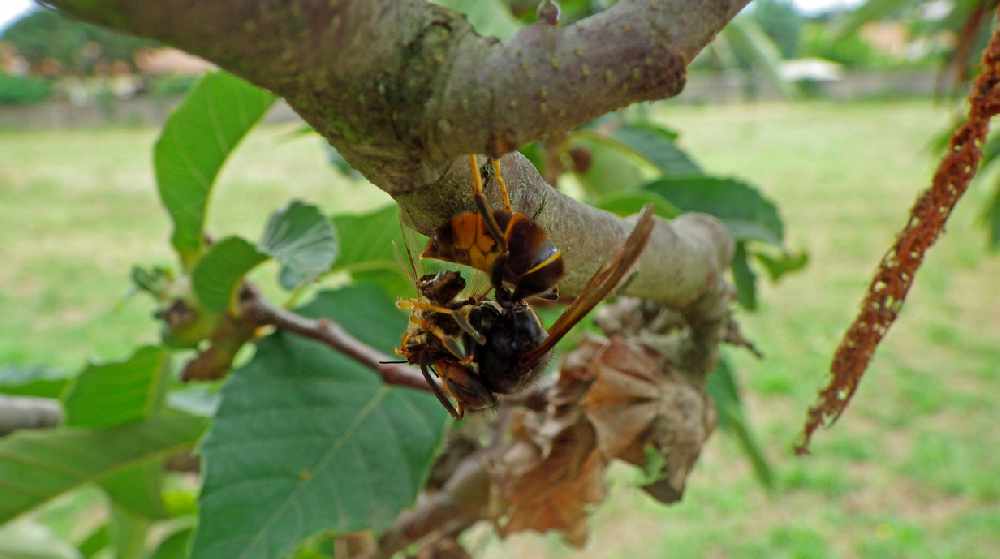
University of Exeter scientists attached tiny tags to Asian hornets, which provide a major threat to bees, to follow them to their nests.
Electronic radio tags could be used to track invasive Asian hornets and stop them colonising the UK and killing honeybees, new research shows.
Scientists from the University of Exeter attached tiny tags to Asian hornets, then used a tracking device to follow them to their nests; the first time this has been achieved.
They tested the technique in southern France and Jersey – where Asian hornets are well established – and the tags led researchers to five previously undiscovered nests.
“Our new method of tracking offers a really important new tool to tackle the spread of this invader, providing an efficient means of finding hornets’ nests in urban, rural and wooded environments,” said lead researcher Doctor Peter Kennedy, of the Environment and Sustainability Insitute on the University of Exeter’s Penryn Campus in Cornwall.
Asian hornets prey on honeybees and other pollinators, and the scientists say the technique demonstrated in their study could help protect Britain’s “beleaguered pollinator populations”.
“It is vital to find the nests early in the season to prevent the hornet spreading, as later in the year hundreds of new queens emerge and disperse from each nest, each with the potential to make new nests,” said Professor Juliet Osborne, a co-author on the study, and Director of the Environment and Sustainability Institute.
The British Beekeepers Association are also pleased about the development of a reliable technique for tracking this invasive predator, and stated: “The BBKA are greatly concerned about the possible incursion by the Asian Hornet because of the devastation likely to be caused to honeybees and other pollination insects.”
 Devon MP explains why he didn’t vote on smoke ban
Devon MP explains why he didn’t vote on smoke ban
 Former diplomat says 'community policing will be top priority' if he's elected
Former diplomat says 'community policing will be top priority' if he's elected
 Businessman says he could bring “creativity” to PCC role
Businessman says he could bring “creativity” to PCC role
 Young voices barely registered in devolution consultation
Young voices barely registered in devolution consultation
 Energetic Pretty Woman is a must-see
Energetic Pretty Woman is a must-see
 Devoncast - Police and Crime Commissioner election special
Devoncast - Police and Crime Commissioner election special
